Indigenous Governance Database
Tribal Documents and Laws
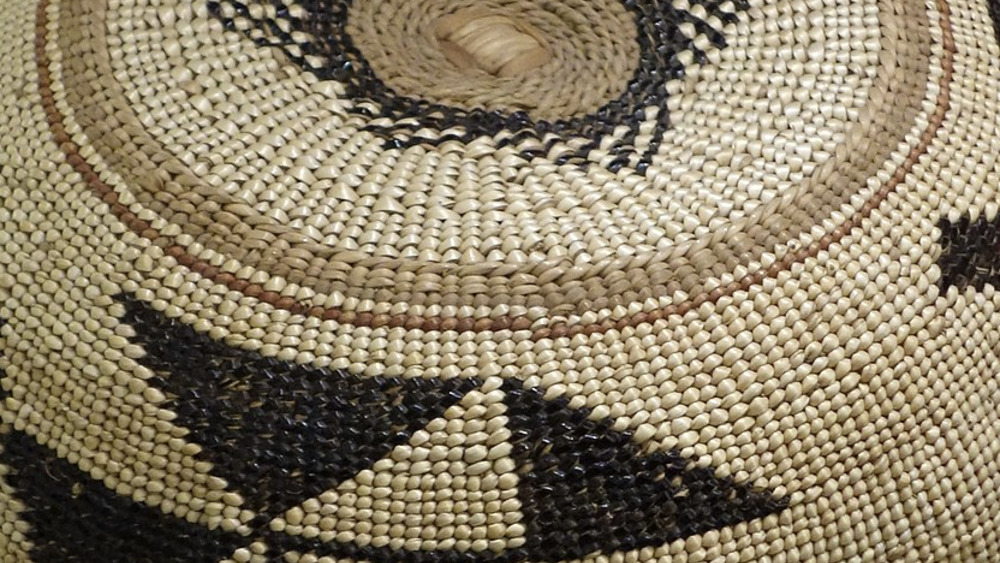
Karuk Cultural Information & Knowledge Policy Statement: Sípnuuk Digital Library, Archives and Museum
U.S. Copyright Laws privilege western intellectual property systems and function as an enforcement tool for ongoing colonial rule over our documented traditional Karuk knowledge. Karuk cultural heritage documentation is currently and has historically been subject to United States Copyright laws,…
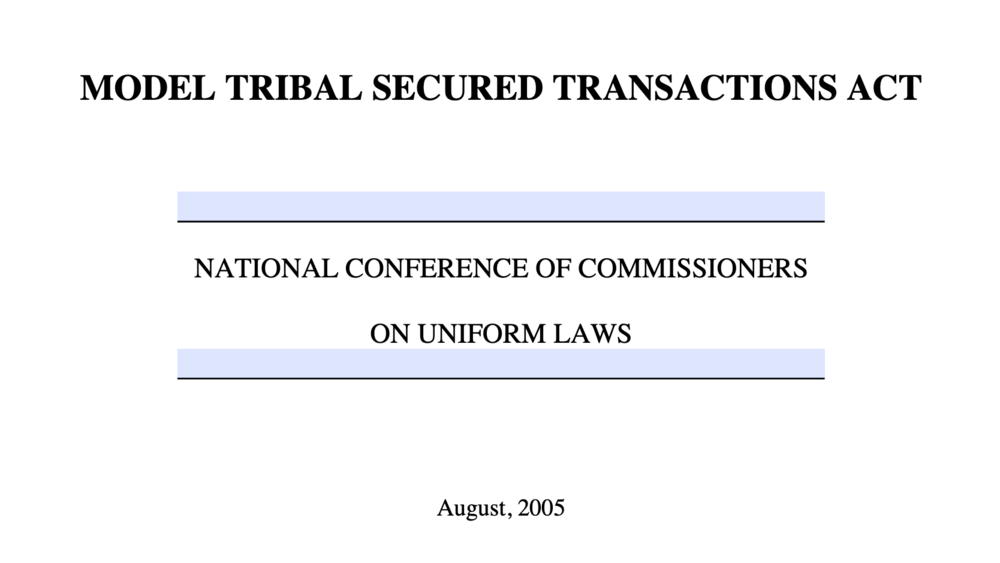
Model Tribal Secured Transactions Act
The Model Tribal Secured Transactions Act (MTSTA) is based on the Uniform Commercial Code's (UCC) Article 9 and provides a legal framework for promotion of private business via secured transactions. A secured transaction occurs when a loan is issued and personal property, not real estate, is used…
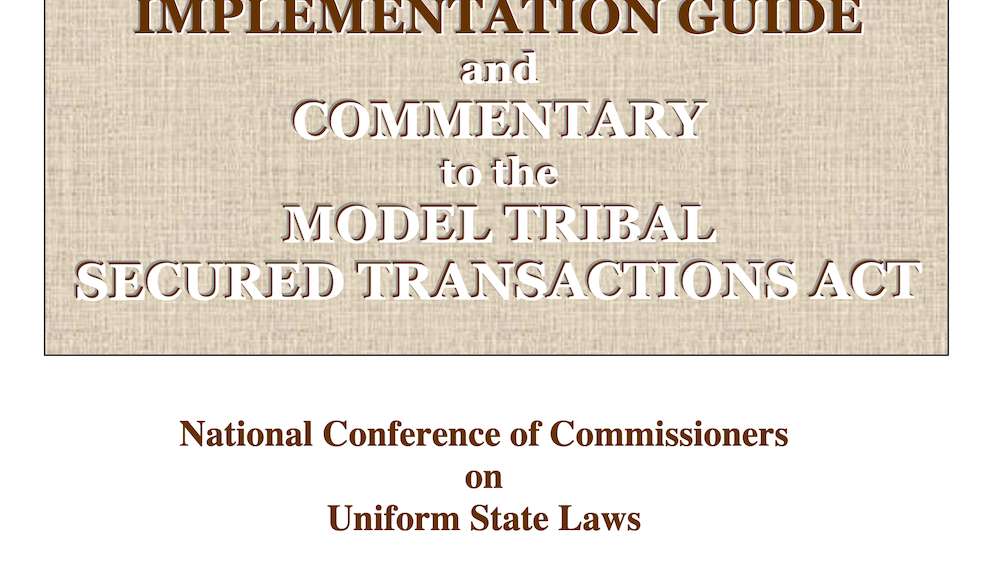
Implementation Guide and Commentary to the Model Tribal Secured Transactions Act
This Implementation Guide and Commentary to the Model Tribal Secured Transactions Act (hereinafter “Act” or “MTA”) drafted by the National Conference of Commissioners on Uniform State Laws (“NCCUSL”) and the Federal Reserve Bank of Minneapolis was developed for three purposes: (1) to assist tribal…
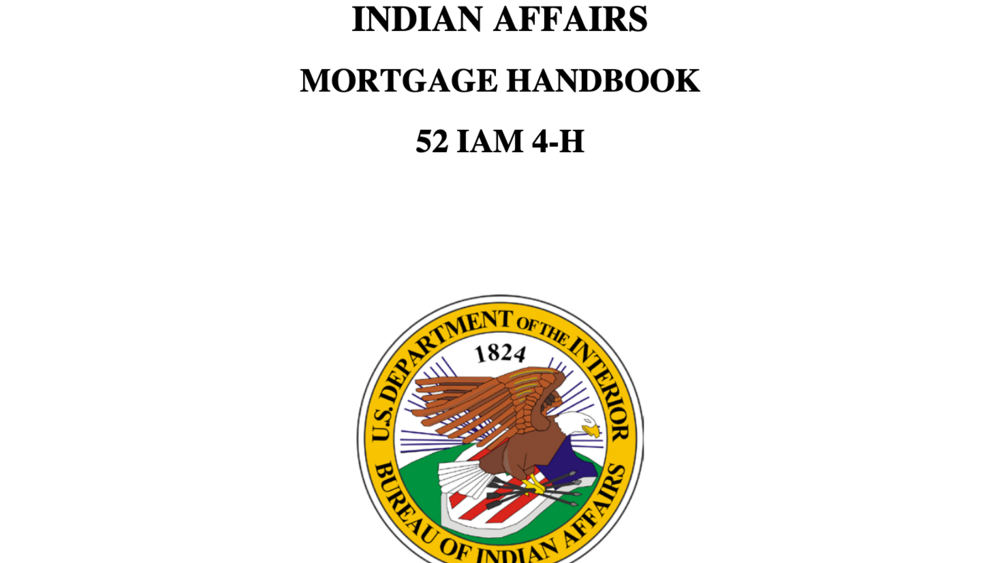
Indian Affairs Mortgage Handbook
The purpose of this handbook is to provide guidance to BIA staff for processing leasehold and trust land mortgages on trust or restricted land; specifically, how to review and analyze a mortgage loan request from a lender using a minimum, streamlined, and standardized process. The handbook contains…
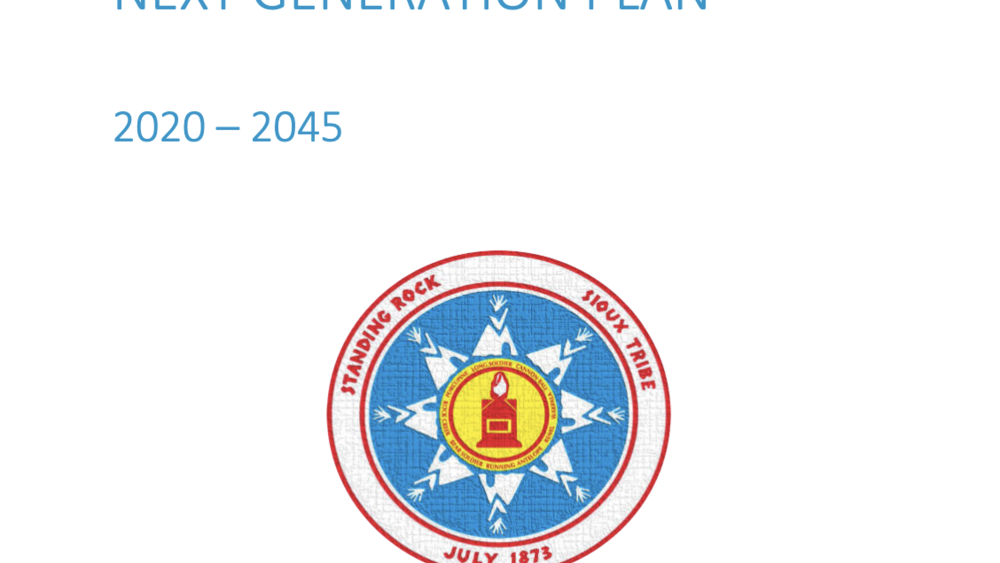
The Standing Rock Next Generation Plan
The Standing Rock Government is engaging in strategic planning. The Standing Rock strategic/government planning model differs from traditional planning models in that it defines 25 years as long term goals, 10 and 5 years as mid-term goals and takes into account the unique dynamics of the…
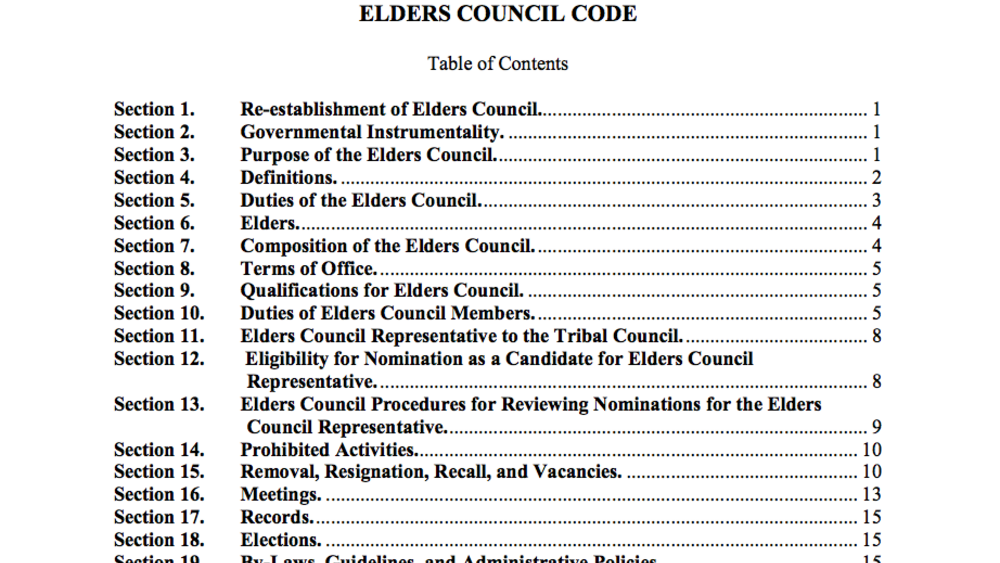
Pokagon Band of Potawatomi Indians: Elders Council Code
The Elders Council shall be organized for the purpose of: A. Providing guidance for the membership, Tribal Council, Judiciary, Executive, and Legislative branches of the Pokagon Band government on matters relative to history, traditions, and culture. B. Recommending to the Tribal Council goals and…
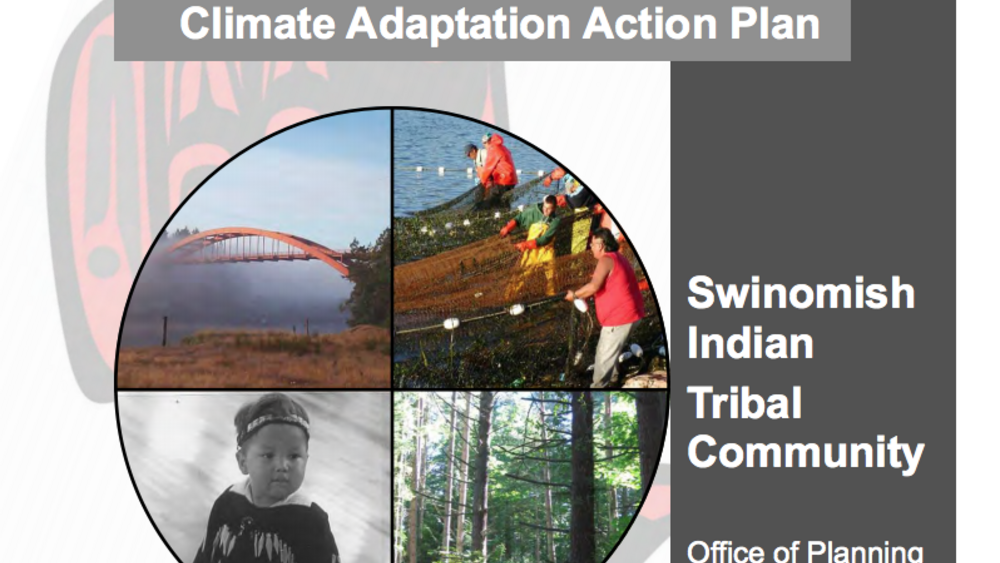
Swinomish Climate Change Initiative: Climate Adaptation Action Plan
In the fall of 2008 the Swinomish Indian Tribal Community started work on a landmark two-year Climate Change Initiative to study the impacts of climate change on the resources, assets, and community of the Swinomish Indian Reservation and to develop recommendations on actions to adapt to projected…
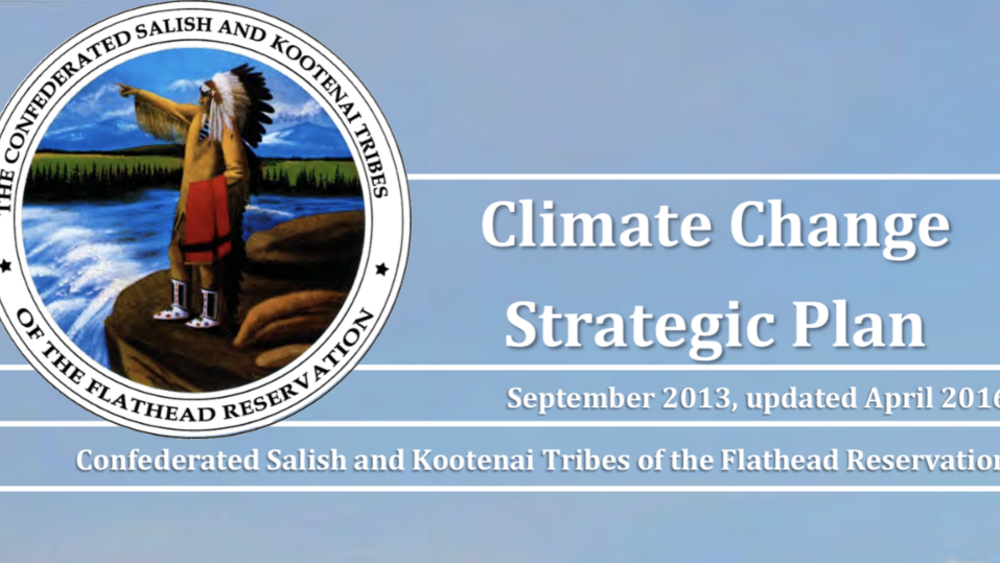
Confederated Salish & Kootenai Tribes Climate Change Strategic Plan
Overwhelming scientific evidence demonstrates that human inputs of greenhouse gases are almost certain to cause continued warming of the planet. (Environmental Protection Agency, 2013) The Northwest has already observed climate changes including an average increase in temperature of 1.5°F over the…
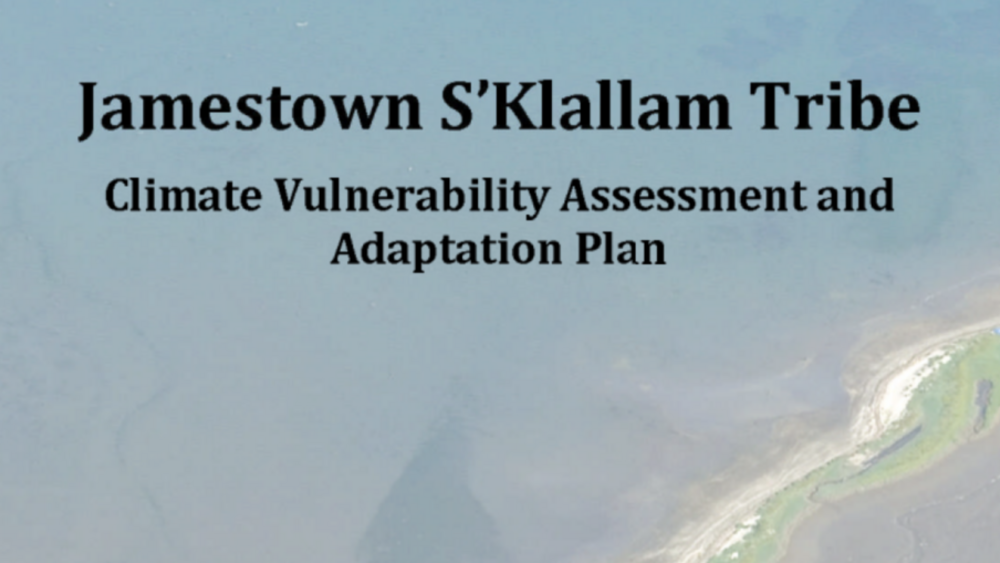
Climate Change Vulnerability Assessment and Adaptation Plan
Jamestown S'Klallam Tribal Citizens and their descendants reside in a landscape that has sustained them for thousands of years, the Olympic Peninusula of Washington State. Particularly over the last two centuries, the Jamestown S'Klallam people have successfully navigated a variety of soceital…
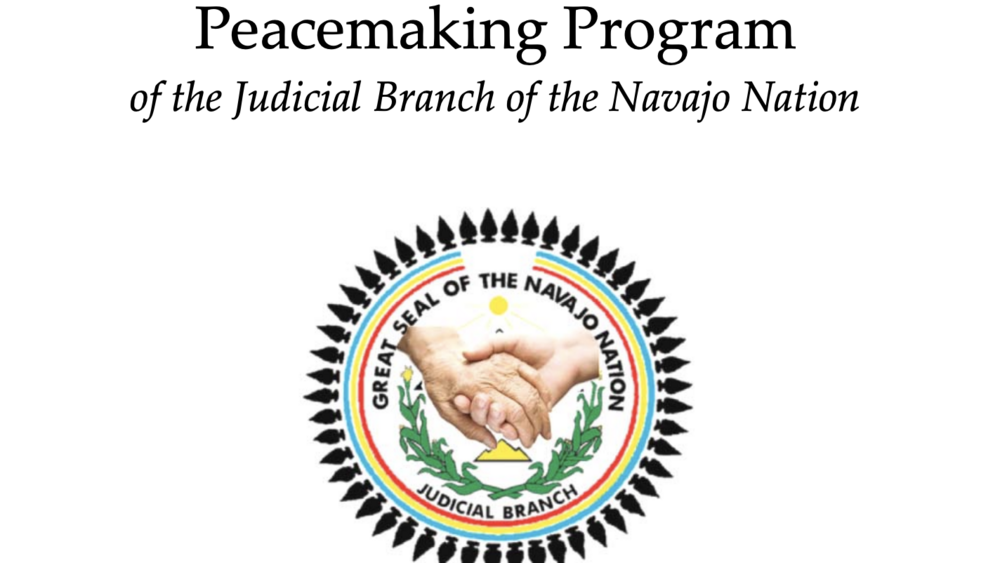
Peacemaking Program of the Judicial Branch of the Navajo Nation
The concept of peacemaking or hózh̨óji naat’aah goes back to the beginning of time and is embedded in the journey narrative. In fact, according to the journey narrative, the Holy People journeyed through four worlds. In the course of their journey, they came upon many problems, which were either…
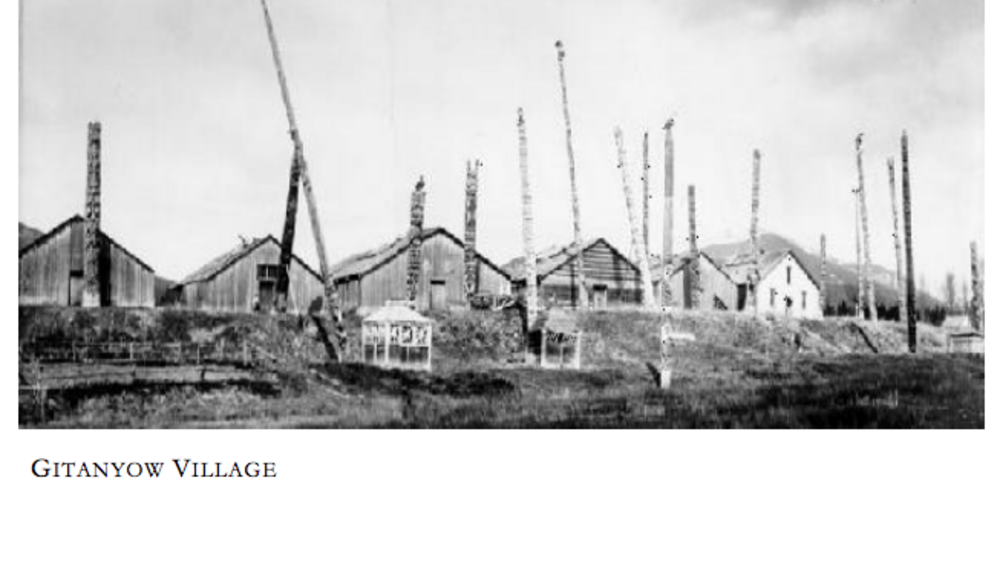
The Gitanyow Ayookxw: The Constitution of the Gitanyow Nation
WE are the Gitanyow peoples. We have a long-standing and rich oral tradition which speaks to all aspects of our lives. This written Constitution must be interpreted and understood in the context of our oral history and oral traditions... THEREFORE, by virtue of our inherent right to…
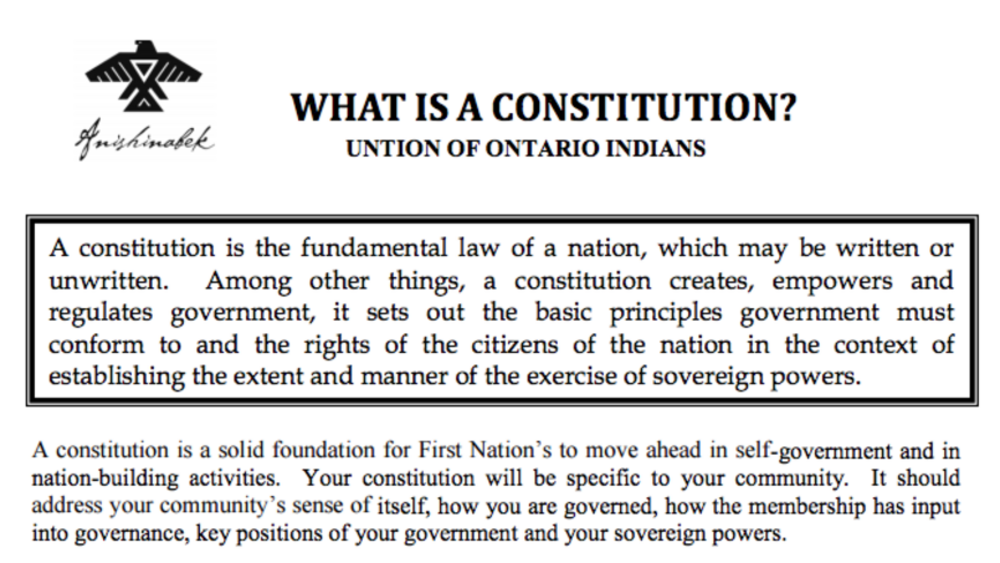
First Nation Constitutions
A constitution is a solid foundation for First Nations to move ahead in self-government and in nation-building activities. Your constitution will be specific to your community. It should address your community's sense of itself, how you are governed, how the membership has input into governance,…
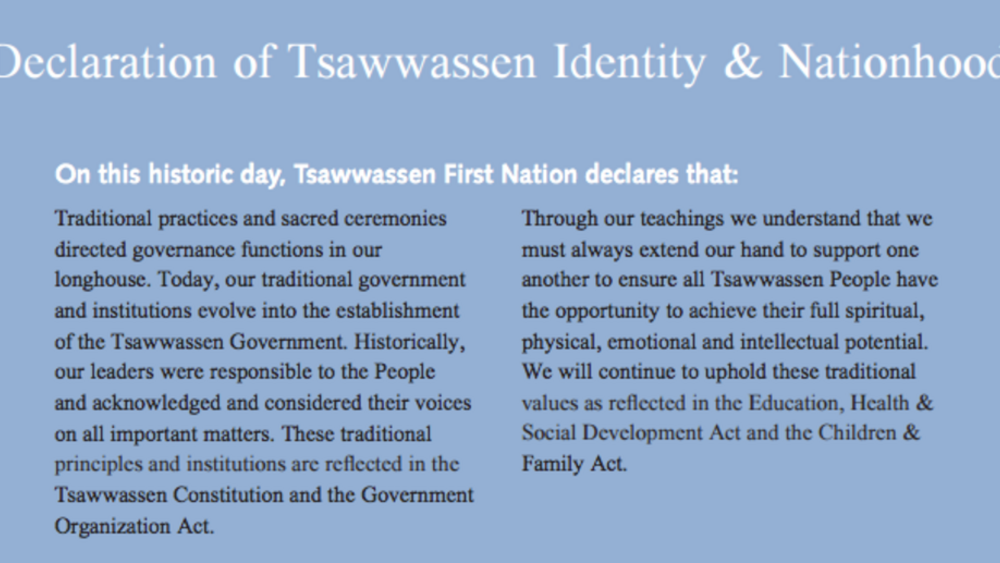
Declaration of Tsawwassen Identity & Nationhood
We are Tsawwassen People "People facing the sea", descendants of our ancestors who exercised sovereign authority over our land for thousands of years. Tsawwassen People were governed under the advice and guidance of leaders, highborn women, headmen, and speakers through countless generations...
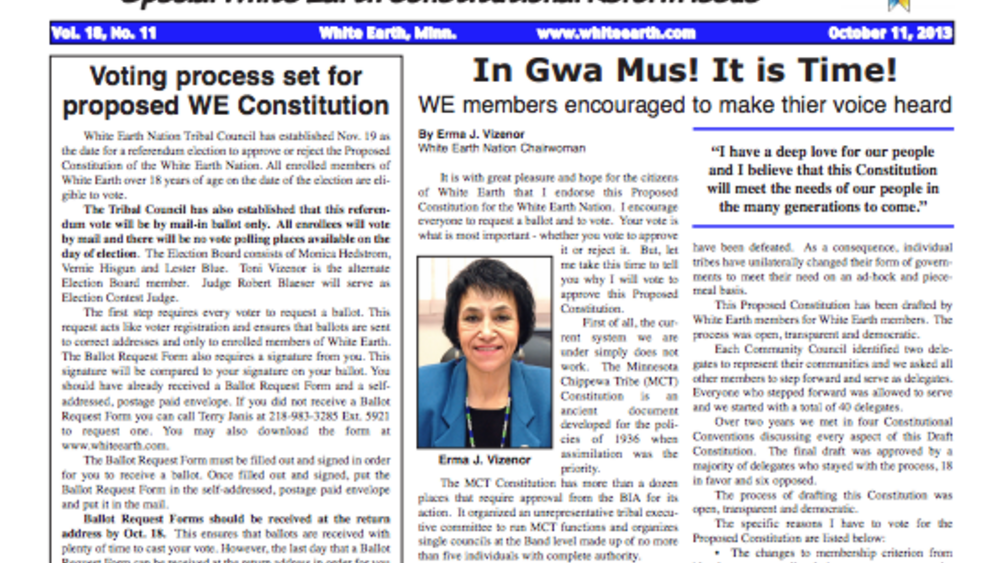
Special White Earth Constitutional Reform Issue
As the White Earth Nation prepares for a referendum election to approve or reject the proposed constitution, the Reform Committee has implemented a series of citizen engagement activities that includes a special issue of the tribal newspaper to inform citizens of the election date, proposed changes…
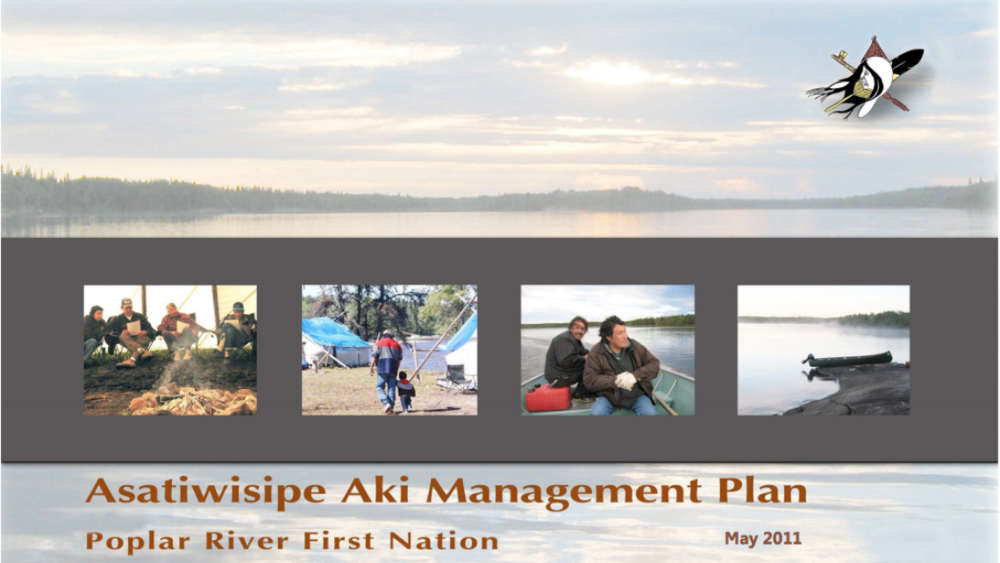
Asatiwisipe Aki Management Plan
The Asatiwisipe Aki Management Plan arises from several earlier initiatives by Poplar River First Nation. Poplar River has completed a variety of studies for the planning area, including traditional knowledge and community history interviews with Elders, traditional land use studies, archaeological…
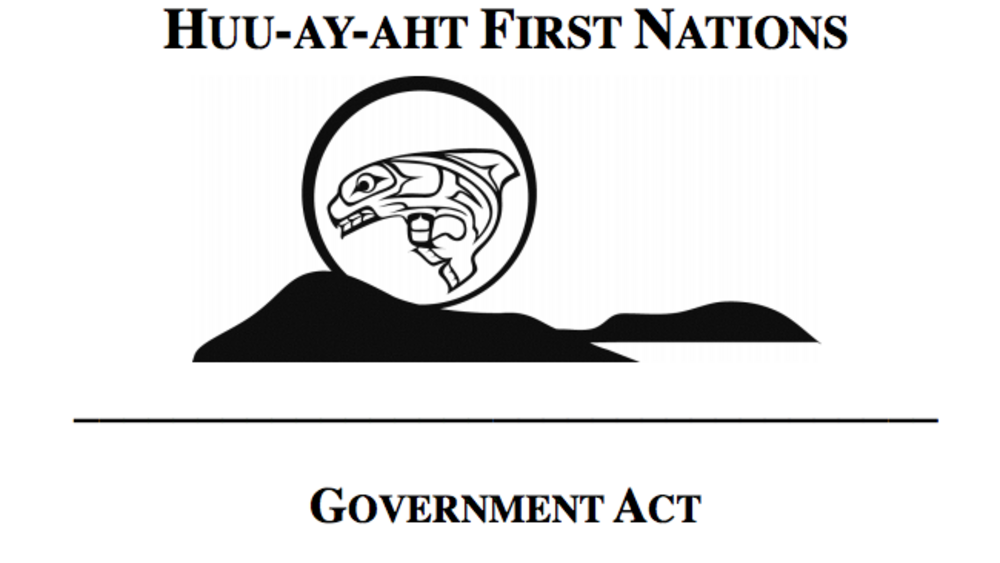
Huu-ay-aht First Nations Government Act
The Government Act sets out the legal framework for the Huu-ay-aht government which includes the following branches: the Legislature, Executive Council, the Ha’wiih Council, and the People’s Assembly.
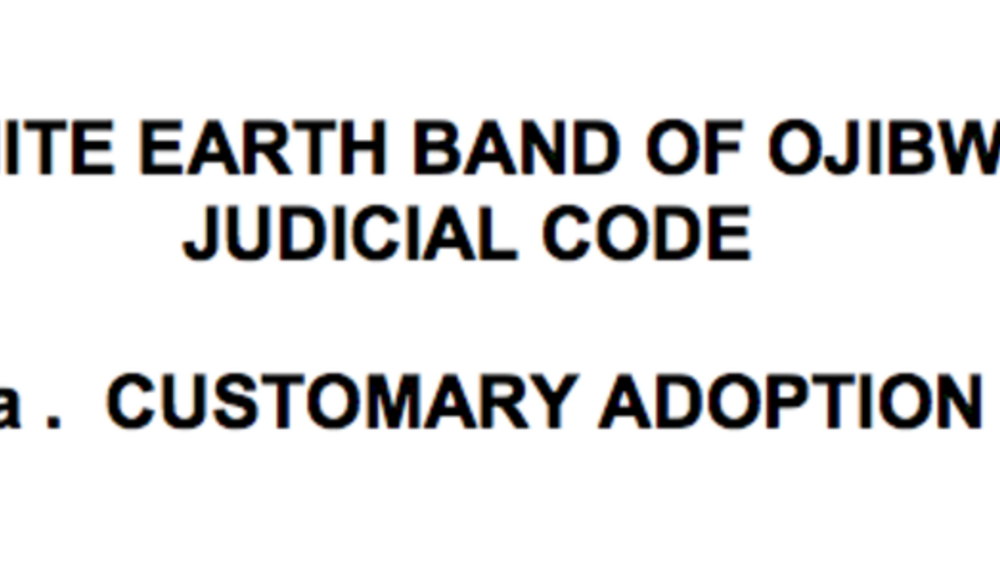
Customary Adoption Code, White Earth Band of Ojibwe
This code, developed by the White Earth Band of Ojibwe, allows adoption on the reservation for children but in a way that promotes cultural growth and support.
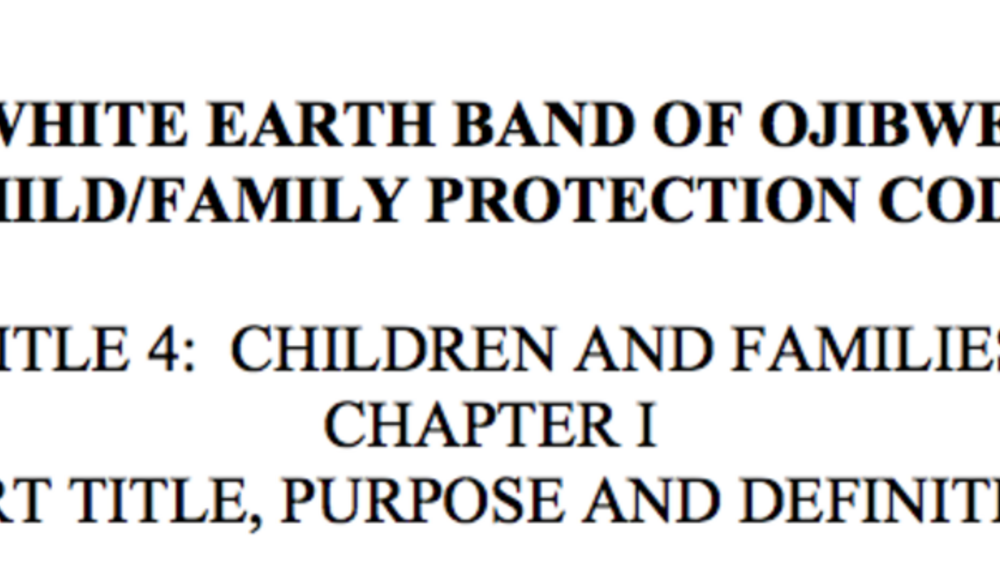
White Earth Band of Ojibwe Child/Family Protection Code
The Child/Family Protection Code, drafted by the White Earth Band of Ojibwe for the purpose of protecting children and families from events of abuse, poverty, and separation.
